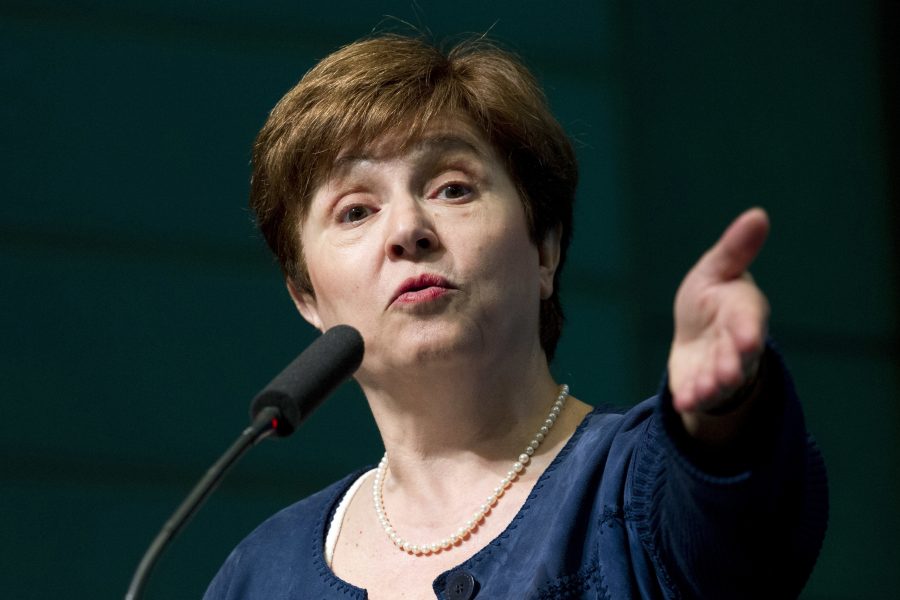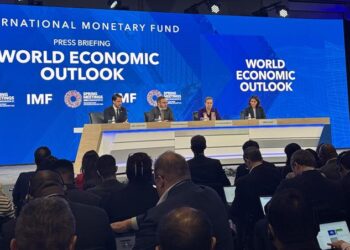The International Monetary Fund is considering a $3.4 billion emergency bailout for Nigeria. The fund is to be used to mitigate the impact of the COVID-19 pandemic on the Nigerian Economy. This is according to Kristalina Georgieva, the Managing Director of the IMF.
Nigeria’s Minister of Finance, Zainab Ahmed had earlier confirmed the country had approached the IMF and other Multi-lateral institutions for a $6.9 billion loan as it grapples with dwindling government revenues and economic uncertainty following the crash in oil prices and the COVID-19 pandemic.
Emergency Bailout: IMF’s Managing Director confirmed in a statement that they were considering an “emergency financing” for Africa’s largest economy. According to Georgieva “We are working hard to respond to this request so that a proposal can be considered by the IMF’s Executive Board as soon as possible,”
READ ALSO: IMF warns about China’s loan terms, as Nigeria’s ‘romance’ with Asian country deepens
In a statement earlier in March, The International Monetary Fund (IMF) and the World Bank had shown concern and preparedness in assisting member countries to deal with the challenges posed by the outbreak of Coronavirus (COVID-19 virus). They also promised to provide funding to emerging market economies like Nigeria.
“The IMF and the World Bank Group stand ready to help our member countries address the human tragedy and economic challenge posed by the COVID-19 virus. We have engaged actively with international institutions and country authorities, with special attention to poor countries where health systems are the weakest and people are most vulnerable.
“We will use our available instruments to the fullest extent possible, including emergency financing, policy advice, and technical assistance. In particular, we have rapid financing facilities that, collectively, can help countries respond to a wide range of needs. The strengthening of country health surveillance and response systems is crucial to contain the spread of this and any future outbreaks.”
What will the money be used for: Nigeria is expected to use the funds to plug its huge revenue gap following the crash in oil prices and its inability to fund a huge part of its 2020 budget. Nigeria has also asked for a freeze in debt service to free up cash urgently needed to put the economy back on track.
READ MORE: FG ready for OPEC talks, as brent crude risk plunging to single digit low
The government announced it was considering several stimulus packages as it aims to shore up confidence in the markets. The Central Bank and the banker’s committee have already committed to a N3.5 trillion debt finance and refinancing package for the private sector.
The FG on Tuesday also announced it was going ahead with its Eurobond loans while also seeking debt reliefs. International Monetary Fund (IMF) and the World Bank Group have also urged all bilateral creditors to suspend debt payment by Nigeria and other 75 International Development Association member countries that have requested for it.
Fun fact: Nigeria has not received any bailout from the IMF since it ushered in democracy in 1999.























